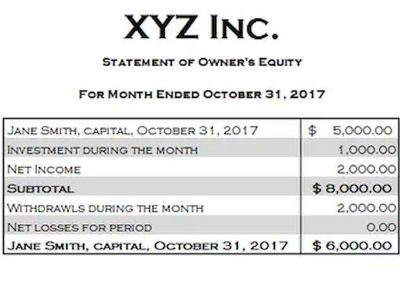
By following these practices, dealerships can optimize their financial performance and stay ahead of the curve in an ever-evolving industry. An Automotive Dealerships Audit Checklist helps in an examination and review of aspects related to an automotive dealership’s operations, processes and compliance with industry regulations and standards. The checklist of automotive dealership audit covers the areas of financial management, inventory control, sales, customer satisfaction and adherence to the regulatory requirements. The main goal is to perform audit procedures in the automotive industry to identify areas of strength and improve the operations of the dealership. The automotive industry or the dealership owners need to perform the audit to ensure compliance with the industry regulations, and financial risk to enhance the performance for customer satisfaction.
- This would be a perfect learning opportunity if you’re newly appointing a compliance officer.
- In conclusion, adhering to essential accounting principles is crucial for dealerships to maintain financial integrity and accuracy.
- Non-compliance can damage dealerships’ financial stability and reputation and result in losing the permits and licenses necessary to operate.
- This means a purchaser does not need an exemption certificate to make purchases of these items or services.
- Our professionals are advisors as well as accountants who will also identify financing techniques, perform operational reviews and suggest ways to improve your profitability while maximizing the tax advantages.
- If you run into any challenges, you can resolve them during the “pre-audit” before the actual inventory audit begins.
Accrual vs. Cash Accounting: What’s Best for Dealerships?
The auditor also reviews the financial transactions, sales, and customer feedback to identify irregularities or concern areas. Inventory affects various facets of dealership accounting, including financial reporting, cost control, and cash flow management. Dealerships must carefully track inventory levels, value inventory accurately, and employ appropriate costing methods to determine the cost of goods sold. Consistent financial reporting helps build trust with stakeholders, including investors, lenders, and suppliers.
How Can Automotive Dealerships Audit Checklist Help?

IAs promote best practices based on industry knowledge and leverage other dealerships’ experience and standard procedures. It may be time for your dealership to reevaluate certain long-term habits and consider implementing more effective processes to help streamline operations and increase productivity. Some examples include input on segregation of duties virtual accountant to ensure logical access, access to standard templates for completing reconciliations, and insight on tracking incentive programs that worked well for other dealers. By comparing internal records with external statements, such as bank statements or supplier invoices, dealerships can identify and rectify discrepancies promptly. This practice not only enhances the accuracy of financial records but also helps in detecting potential fraud or mismanagement.
Cox Automotive Releases Dealertrack 2025 Compliance Guide

The automotive dealership audit checklist helps in maintaining the quality of the services or products after finding the loopholes through auditing. From tax minimization and fraud prevention to mergers and acquisitions and cost segregation studies, you’ll petty cash benefit from a full range of services designed to help you navigate the complex retail dealer market. And you’ll benefit from our active participation in state and national dealership associations, as we’ll ensure you stay current on the issues, trends, and laws affecting your business — and your livelihood.
- Cash spiff logs may be inspected to test that they are properly tracked, approved, and included in wages for tax withholdings.
- This will help them attract new clients through positive word of mouth and enhance existing customers’ loyalty.
- From managing finances to ensuring compliance with taxation and accounting standards, dealerships must prioritize sound financial management to drive growth and profitability.
- A single point of contact at your dealership can drive accountability and ownership of the audit to ensure nothing falls through the cracks.
- Plus, you’ll end up feeling secure in the knowledge that you’re complying with the code of ethics and policies aimed at all dealership departments and their employees.
- This checklist aims to streamline the compliance process and facilitate effective management of various legal and operational aspects within the dealership.
The Automotive Dealerships Audit ensures that the dealership complies with the regulations governing sales, finances and operation which will help in reducing the risk of penalties or legal action resulting from non-compliance. The Automotive Dealerships Audit is performed to verify compliance with applicable laws and rules & regulations governing the automotive dealership operations. The auditor gathers all the relevant data and documentation including financial statements, sales, records, inventory reports, records and feedback from the customers. Sellers have the right to refuse your exemption certificate, even if it is correct and properly completed. You may apply for a refund of the sales tax using Form AU-11, Application for Credit or Refund of Sales or Use Tax.
Sell cars on the lot faster with AutoRaptor

Later, they should be erased from digital records, and the papers should be shredded. Additionally, financial distributions should make efforts to risk penalties and comply. Dealerships accounting for car dealerships must address and resolve customer complaints and provide exceptional customer experiences. They should also have a well-defined process for handling and adhering to their customers’ queries and meeting their needs.
The dealership’s role in the customer experience journey
Overvaluing a trade-in can erode the dealership’s profit margins, while undervaluing it can deter potential buyers. To strike the right balance, many dealerships use specialized software like Kelley Blue Book or Black Book, which provide real-time market data and valuation benchmarks. These tools help ensure that the trade-in offer is competitive and reflective of the vehicle’s true worth.


In conclusion, adhering to essential accounting principles is crucial for dealerships to maintain financial integrity and accuracy. By choosing the appropriate accounting method and ensuring consistent financial reporting, dealerships can effectively manage their finances, make informed decisions, and build trust with stakeholders. Accounting plays a pivotal role in dealership operations by providing accurate and timely financial information. It serves as the foundation for decision-making, cost control, and monitoring overall performance. Without robust accounting practices, dealerships risk running into financial difficulties, inventory imbalances, and compliance issues. Technological advancements, such as the rise of electric vehicles (EVs) and online car sales platforms, also impact accounting practices.

